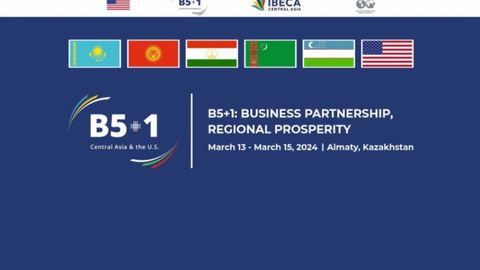Kazakhstan reviews investment climate, C5+1 implementation at council meeting
17:21 / 21.02.2026
Uzbekistan to launch national recycling program for cars, electronics, and solar panels in 2026
15:35 / 21.02.2026
Uzbekistan grants first cryptocurrency mining permit to NexaGrid
14:00 / 21.02.2026
Uzbekistan’s Karakalpakstan targets $5bn in investment for AI and cloud expansion
13:03 / 21.02.2026
Uzbekistan repatriates citizens from Russia, Montenegro and Sri Lanka amid migration, employment disputes
11:30 / 21.02.2026
Recommendations
Menu
Good news:
Tags
Grow your business with us
Advertise on Daryo.uzIndividual approach and exclusive materials
Ad-free site readingSubscribe
25 000 sum per month






Comments
To leave a comment, first